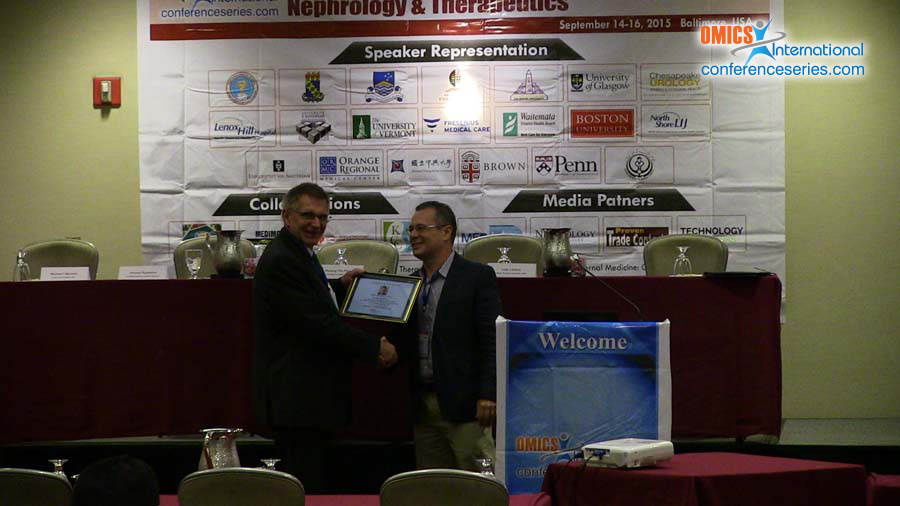
Paulo Roberto Santos
Federal University of Ceara, Brazil
Title: Spirituality, quality of life and depression among hemodialysis patients
Biography
Biography: Paulo Roberto Santos
Abstract
Low quality of life and high prevalence of depression are universally found among end-stage renal disease patients undergoing hemodialysis. In the past decade, technical advances of dialysis therapy have not been sufficient to improve the quality of life or decrease the prevalence of depression. Many variables associated with poor quality of life and depressive symptoms are not modifiable, like gender, age, and comorbidity. The relationship of spirituality and well-being is well documented in the literature. In the nephrology area, there are reports of better quality of life and less depression among dialysis patients with a greater perception of spirituality and religiosity. Nevertheless, more studies on spirituality are necessary among hemodialysis patients, especially because to some extent spirituality can be modified, and strategies aiming at engaging patients in discussions about their spiritual concerns can be implemented by the care team. We conducted an observational study comprising 161 end-stage renal disease patients undergoing hemodialysis in the only dialysis center in the northern Ceará state, northeast Brazil. Spirituality was assessed by the Religious Coping Activity Scales (RCOPE). Depression was screened by the 20-item version of the Center for Epidemiologic Studies Depression Scale (CES-D). Quality of life was evaluated through the Brazilian version of the Medical Outcomes Study 36-Item Short Form Health Questionnaire (SF-36). We found depression rates of 27.3%. Positive religious coping was negatively correlated with depression score (r=-0.200; p=0.012), meaning the more positive religious coping was, the lower the depression score tended to be. In addition, positive religious coping was an independent protective factor for depression (OR=0.132; CI 95%=0.021-0.910; p=0.039). Regarding quality of life, positive religious coping was able to independently predict better quality of life scores related to the following dimensions: bodily pain (b=14.401; p=0.048) and vitality (b=12.580; p=0.022). On the other hand, negative religious coping independently predicted worste score of the dimension social functioning (b=-21.158; p=0.017). Our results add further evidence that spirituality is a powerful mediator of quality of life and depression. Clinical implications for the care team are:Patients using religious resources should be encouraged, while psycho-spiritual interventions should be tried targeting religious struggle (negative religious coping) among hemodialysis patients.


